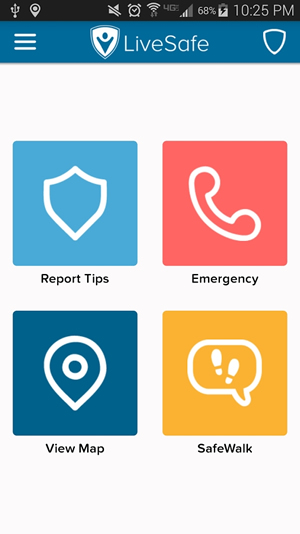Arizona State Adds Safety Mobile App, Allows for Virtual Escort
- By Dian Schaffhauser
- 08/26/14

LiveSafe lets users report tips anonymously with GPS-tagged information that has pictures, video and audio; receive safety alerts; and learn more about local crimes. |
The community at Arizona State University (ASU) will be able to use a new mobile app that allows them to communicate with the campus police department. The university recently said it would be adopting LiveSafe from a company of the same name. Versions of the app are available for iOS and Android.
LiveSafe lets the user report tips anonymously with GPS-tagged information that has pictures, video and audio; receive safety alerts; and learn more about local crimes. A SafeWalk function allows one person to walk another person home "virtually," by viewing his or her progress on a map.
"ASU students come to campus with a smartphone in their hand. Increasingly, it's the primary way they connect to the world around them," said Rudy Bellavia, managing director of the university's Business and Finance department. "For all of us focused on campus safety, we need to meet students where they are, and LiveSafe is a smart way to do just that."
Added Michael Thompson, acting police chief, "Opening and promoting the lines of communication with everyone on campus is critical for us as a department. LiveSafe makes it easier for us to respond to our community's needs."
The app is also in use at Georgetown University and West Virginia University, among other schools.
About the Author
Dian Schaffhauser is a former senior contributing editor for 1105 Media's education publications THE Journal, Campus Technology and Spaces4Learning.